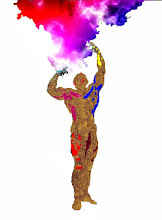From the time of the Greeks we have been fascinated with automated machinery and the ability to break free of its intended purpose. The very word automaton is Greek in origin. Talos was an artificial man of bronze, others Greek mythology stories included automated machines or statues that spoke. During the middle ages actual statues with moving parts were created. The fear was always that some evil spirit would inhabit them. Either by divine power or magic the machines could be made to do harmful things. In other words, a mind of their own but really more a mind of their creator. Of note is a story from Arabian Nights which detailed lost technologies that were advanced enough to have dancing marionettes without strings and a robot horse.
This
started to be seen as an actual tangible reality when the first computers were
invented. I’m sure he’s not the first
but Isaac Asimov’s 1950 book I, Robot is the best example of defining
intelligent thinking robots. A
self-contained mechanical person with as much intelligence or more than a human
being. How could such a being be
controlled was the central theme behind the three laws of robotics coined by
Asimov.
With
technological change comes change in the central theme of an artificial
intelligence. The Internet was in its
early stages when the focus changed from a singular contained intelligence to a
distributed intelligence. Now, with such
an intelligence if it was a single entity contained in a building it could
access information and processing power all over the world. Or it could actually be a distributed
intelligence. Terminator popularized the
idea of Skynet. Terminator I & II
focused on a mainframe or data center contained in an underground bunker which
was put in control of our nuclear arsenal.
Terminator III further enhanced the idea that Skynet did not exist in
one place but was distributed through a series of viruses or malicious computer
programs.
Standing
away from the Armageddon scenarios there is always a confusion between life,
intelligence and self-awareness and a directed will. A bacterium is alive because it employees the
eight life processes which are (1) Nutrition (2) Transport (3) Synthesis (4)
Growth (5) Excretion (6) Respiration (7) Regulation and (8) Reproduction. A virus (the organic kind) is
questionable. The main thing is they
cannot reproduce on their own. They have
to have a host cell do it for them. An
intelligent lifeform in its simplest form can think for itself. Is an ant intelligent or is it just following
a program? Ants know how to avoid
danger. Mice obviously can reason and think, though they are not self-aware. Monkeys are self-aware and they have a will
to a degree. Without getting into a
large debate they are about as close to being a self-aware intelligent being
like ourselves as you get on this planet.
Is the internet alive in the most basic sense?
What
is the internet? Is it the physical
computers and transmission lines? In that
respect no, the internet can clearly not perform many of the functions of a
lifeform. Or is it the handling and
processing of data and the maintenance of the network?
- The internet needs energy in the form of electricity to operate. What would happen if we shut down the entire internet? Could we just turn everything back on? Would it work like nothing happened or is it a flow? Electricity is its nutrition.
- It transports information, that’s its primary job.
- Synthesis is a tough one, to combine two products into something else. It does package and unpackage data packets. We talk about the seven or five layers of protocols,
- It obviously grows in size every year, we humans do the work. Mainframes can control data stores and memory usage.
- It deletes old data and packets that failed to send or were sent to a bogus address.
- It takes in and it pushes out data every millisecond.
- It regulates packet flow
- It does not reproduce to my knowledge. Though the internet is a series of inter connected networks. More than likely it does not really reproduce but it can split itself and reconnect.
In addition it does defend itself against viruses. I would say the
Internet is as close to a living being as we can get. I do not believe in spontaneous self
awareness or intelligence. If I had to
choose a lifeform that the Internet most closely represents it would be an amoeba.


No comments:
Post a Comment